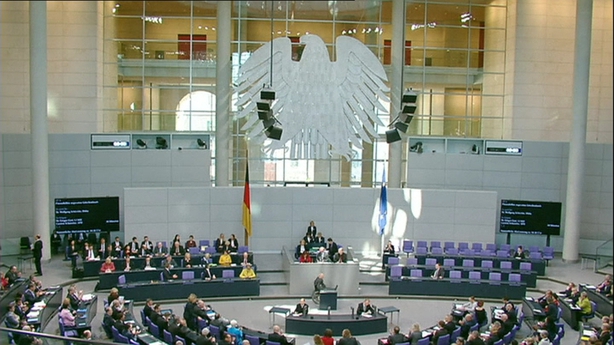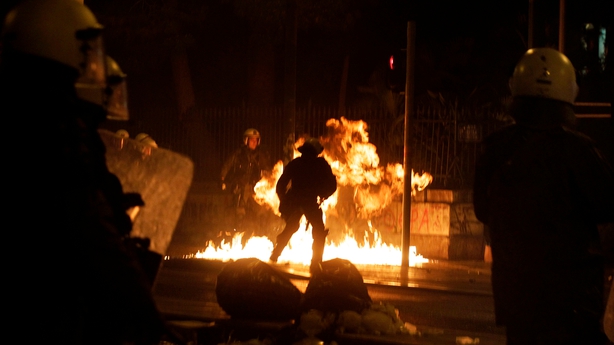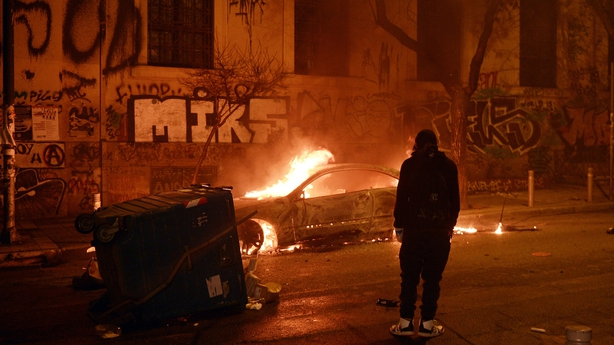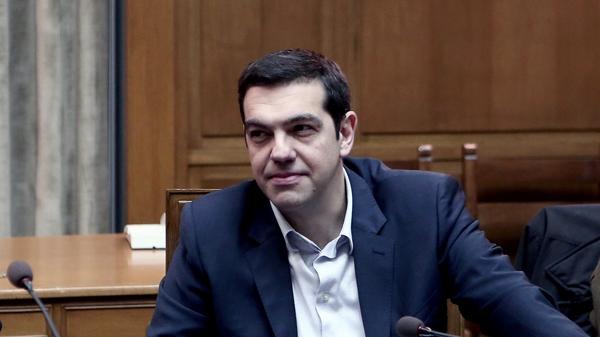The German parliament has voted to extend the Greek bailout for another four months.
A total of 542 members of the Bundestag voted in favour of the proposal with 32 against and 13 abstentions.
German Finance Minister Wolfgang Schaeuble earlier urged his country's politicians to approve the bailout extension, saying it was no easy decision but necessary.
He asked politicians "not to reject the request by the finance ministry, which wasn't easy for me either, because this would do great harm to our people and our future".

Despite misgivings among some politicians, the Greek reprieve had been expected to easily pass the Bundestag lower house of parliament.
Chancellor Angela Merkel's left-right "grand coalition" has a commanding majority in the house and opposition parties had also signalled support.
Greece on Tuesday secured the four-month extension to its €240bn bailout after gruelling negotiations with creditors.
It averted a potentially calamitous end of February deadline that could have seen Athens face default, bankruptcy and ultimately an exit from the euro.
The new government of left-wing Prime Minister Alexis Tsipras published a list of proposed reforms focused on tackling tax evasion and corruption, as well as greater government efficiencies in order to unlock several billion euros left in the programme in the coming months.
"This is not about new billions for Greece," Mr Schaeuble told parliamentarians this morning.
"This is not about changing the programme. This is about granting more time to successfully conclude this programme."
Fresh tensions emerged yesterday between Germany and Greece in the debate over Greece's debt of €320bn - equivalent to 175% of its annual economic output - and most of which is now owed to its European partners.
Greek Finance Minister Yanis Varoufakis this week again raised the issue of renegotiating Greece's debt mountain, prompting Mr Schaeuble to express his "disbelief" that the idea had been mooted.
"The discussions before and after the elections in Greece didn't make this decision any easier, and neither have the discussions of the past few days and hours, to put it mildly," Mr Schaeuble told lawmakers.
He reiterated that in requesting an extension, Greece also had to commit to sticking with its terms.
Mr Schaeuble, 72, an inveterate pro-European, said help for Greece was necessary in a Europe guided by the principle of solidarity, a message often repeated by Ms Merkel.
Greece sees violence after anti-government march
Last night, dozens of protesters clashed with riot police in central Athens after an anti-government march, the first since the leftist Syriza party took power a month ago.
Around 450 protesters took to the streets against the newly-elected coalition government of Prime Minister Alexis Tsipras.
The Greek deal has triggered dissent within Mr Tsipras' own party and accusations by some on the hard left that the government is going back on pre-election promises, including to end a much-hated €240bn EU/IMF bailout programme.

 After the march, about 50 anti-establishment protesters wearing hoods hurled petrol bombs and stones at police in Athens' central Exarchia district.
After the march, about 50 anti-establishment protesters wearing hoods hurled petrol bombs and stones at police in Athens' central Exarchia district.
A small number of shop windows and bus stops were also smashed or damaged during the violence.
The incidents, albeit on a small scale, mark the first public disorder against the leftist government.
The new government was elected on 25 January on a promise to write off a chunk of the country's debt and end painful austerity, which has helped push one in four Greeks out of work.

